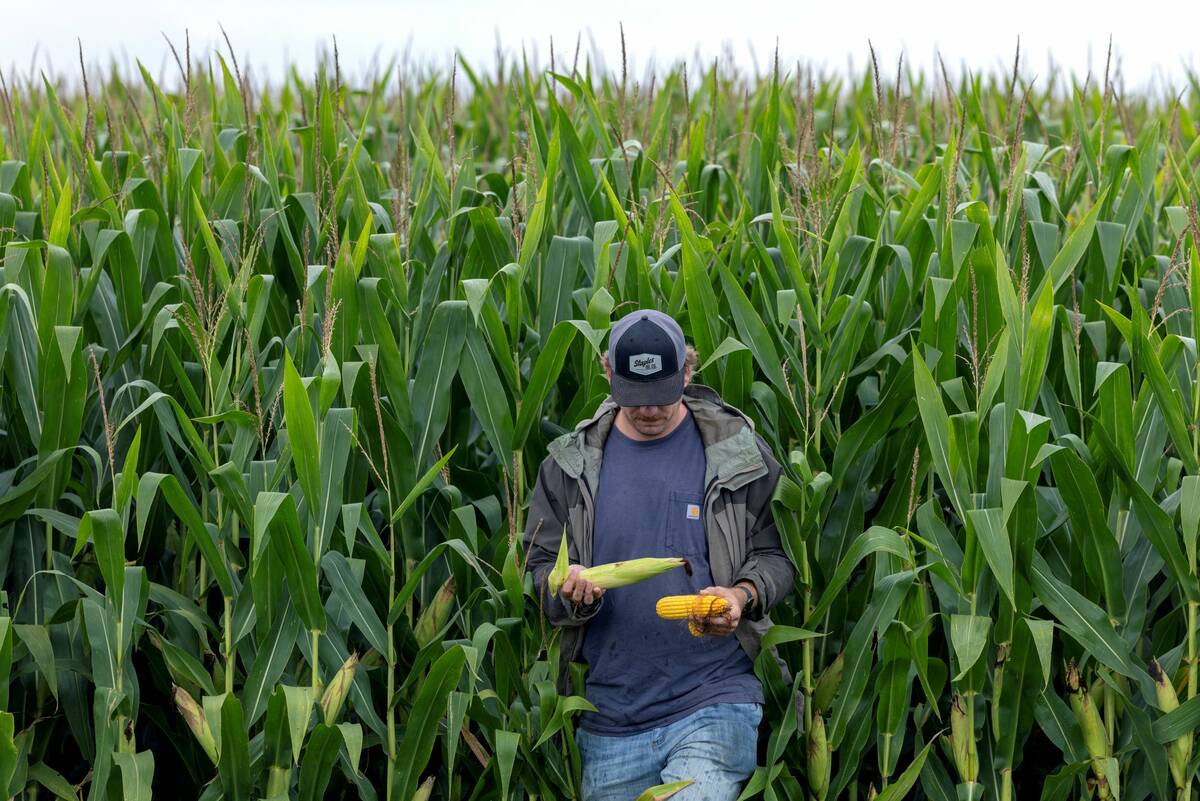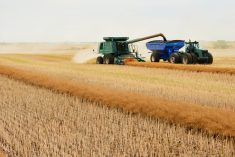MarketsFarm — Acquiring livestock feed has been increasingly expensive as Russia’s ongoing invasion of Ukraine, and a retaliatory ban on Russian oil imports by many Western nations, has caused oil prices to severely rise every day.
As corn imports from the U.S. continue to make their way into Alberta feedlots, the cost to transport them has kept getting higher.
“Over the past couple of months, we’ve been dealing with increased freight charges,” said Erin Harakal, trade manager for Agfinity Inc. in Stony Plain, Alta. “I heard recently from truckers I’ve talked to that they’ve been seeing a 25 per cent fuel surcharge.”
Read Also

The U.S. corn crop could be the biggest ever. That’s terrible news for America’s farmers.
The USDA predicts a record corn crop for U.S. farmers, who question the agency’s accuracy amidst high debt and low crop prices.
The increase in freight rates has been between $1 and $2 per tonne since last year, she said, adding that picked-up prices for grains, transported by either truck or train, are expected to decrease slightly to offset rising fuel costs.
A lack of price movement in both Alberta feed barley and feed wheat has not sparked additional demand for either commodity. Corn has recently seen a small rise in prices, but not enough to convince feedlots to order more barley or wheat.
“For April/May, we were looking at $395-$410 per tonne ($10.03-$10.41 per bushel) delivered into Lethbridge,” said Harakal. “There hasn’t been that much of a demand for feed barley compared to previous years. A lot more feedlots are feeding corn.”
According to Prairie Ag Hotwire, the high-delivered bid for Alberta feed barley is $9.69/bu., compared to $9.41/bu. in Manitoba and $8.53/bu. in Saskatchewan. High-delivered bids for feed wheat are $12.66/bu. in Alberta, $12/bu. in Saskatchewan and $11.04/bu. in Manitoba.
But in order for there to be a bumper crop, and in turn lower prices, there also needs to be enough snow cover to replenish parched soil.
Despite greater-than-normal amounts of snowfall in parts of Saskatchewan and Manitoba, Alberta’s snowfall has been insufficient.
“From what I’ve been hearing, south of Red Deer there hasn’t been as much snow this year,” said Harakal. “There are drier conditions down there. (Growers) are a little bit nervous they didn’t get the moisture that they needed when it comes to growing for the spring here. But it’s hard to tell until we get to spring.”
— Adam Peleshaty reports for MarketsFarm from Stonewall, Man.












